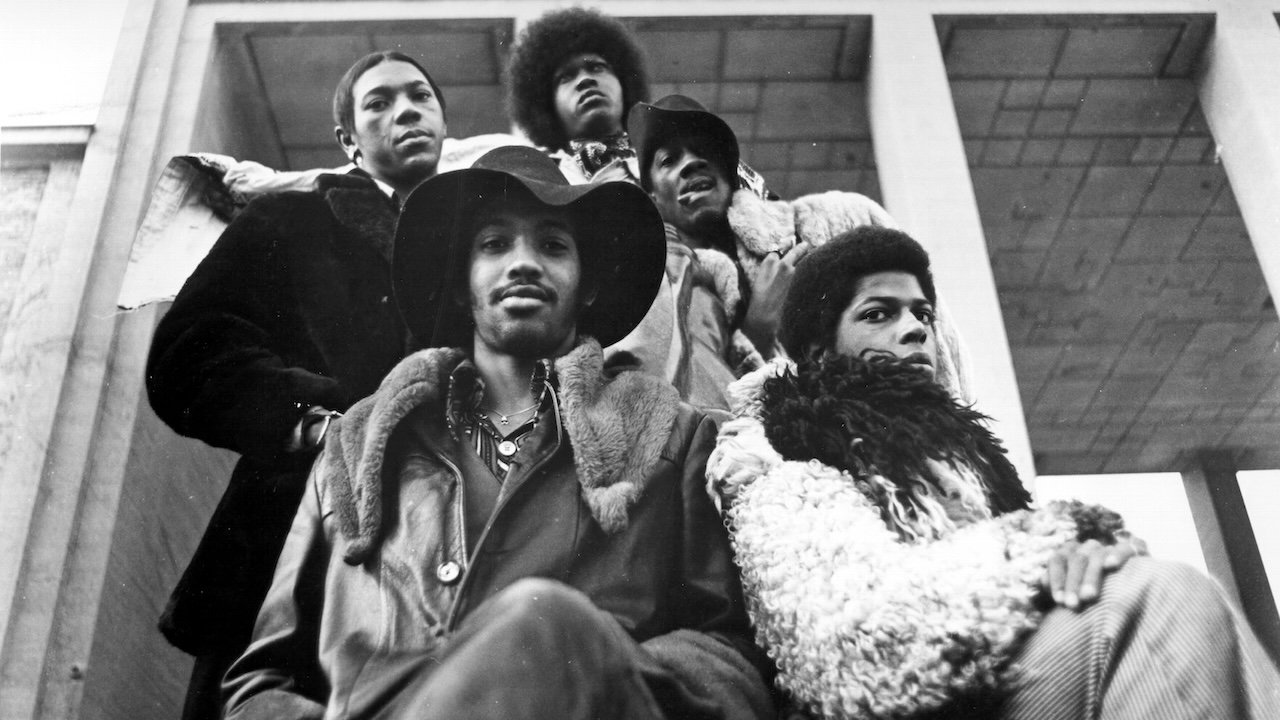Ashley Reeve: "Your talent is all in your hands. You can make a $200 bass sound great if you know what you’re doing"
The Cher bassist shares her tips on how to make it as a musician

All the latest guitar news, interviews, lessons, reviews, deals and more, direct to your inbox!
You are now subscribed
Your newsletter sign-up was successful
“I’ve just moved to Las Vegas because it has such an incredible live music scene,” says Ashley Reeve, who currently holds down the low end in the world’s biggest arenas with the perennial Cher. “I can go on the road and then, when I come home, I can hit the ground running because there’s so much great live work here.”
A devotee of Aguilar amps, Reeve also generates the low notes via a tricked-out Dingwall bass guitar.
“I want people to know that Dingwall is much more than just a rock bass company,” she says. “The beauty of playing Dingwall basses with an artist like Cher is that I can demonstrate their versatility. By toggling the rotary selector to the neck pickup, you can get an incredible vintage tone with a tight bottom end.”
Beyond the topic of tone, how else can she advise bassists about their way into the industry?
Affordable doesn’t mean cheap
“Don’t focus on having the most expensive, boutique bass. I grew up playing basic Peavey and Squier basses, and they’re great instruments: They got me through the better part of my education.
“Your talent is all in your hands – you can make a $200 bass sound really great, if you know what you’re doing and you know what tone you’re looking for.
Find real bands to play with, ideally featuring musicians who are better than you are. They can only make you a better player
“If a bass feels good in your hands, buy that. Go to a guitar store, put a blindfold on and have someone hand you five basses. Pick the one that sounds and feels the best. I literally got blindfolded and chose my bass!”
All the latest guitar news, interviews, lessons, reviews, deals and more, direct to your inbox!
- 10 of the best beginner bass guitars: great budget four-string basses
Use social media to your advantage, not your disadvantage
“Posting videos of your playing is a great way to share with the cyber-world what you’re capable of – but don’t get so locked into it that you forget to play with real people. Find real bands to play with, ideally featuring musicians who are better than you are. They can only make you a better player.
“Over time, their feel becomes something you’re a part of. I’ve played with great drummers that were so beyond me, but over time I no longer felt like I was being bulldozed over… I was one with them. It can be scary, but it’s worth it.”
Know your worth
“We all have to pay our dues, playing for practically nothing at the beginning – but as you grow, don’t be afraid to ask for the money you’d feel more comfortable making when someone asks for your rate. If everyone worked for free, then the bar would be really low for all of us and no one would make any money.
You’ve got to live in a town that has a booming music scene. It’s all about networking
“Most of us are our own managers, so it’s important to have an idea of what you’d like to be making. Sometimes we have to compromise, but make sure you always have a bottom line. Eventually, someone may offer more than you’ve ever made – and it feels like Christmas. Your rate just went up!”
Find the right place to live
“You’ve got to live in a town that has a booming music scene. Immerse yourself in an environment that has the jobs you’re looking for, and the people you can connect with, because it’s all about networking.
“You need courage to do this – it’s a leap of faith – but it’s a worthy gamble. Los Angeles is a great place for connecting. It’s where a lot of people source bands for major pop acts. Nashville has an incredible scene, it’s great for singer-songwriters and country bands.
“But if you’re in a really small town, don’t give up – take every opportunity to play that you can. That might mean your local church to start with, then you can branch out.”
Become friends with the people whose jobs you aspire to
“I was lucky because I grew up in L.A., so my network was at my feet. I went to the Los Angeles High School For The Arts, surrounded by people who were on the rise and already connected, so I was able to build my network from the time I was in high school.
“My early recommendations came from those friends that I knew in high school and at Cal Arts when I went to college, so I’m a rarity, but I think it’s still something that anyone can do.
“Go to shows and try to meet the right people. Make sure you attend the aftershow meet-and-greet where you can connect with these people and pick their brains.”
Ask for help
“Ask people who inspire you for information and knowledge, because that’s how we all grow. Ask if they need a sub, too. Building a sub relationship builds trust, and in the event that a bassist gets too busy with something else, that gig may become yours.
“Take lessons with people too – there’s no shame in that. I even asked Jimmy Johnson for a lesson and he shot me down, but that was only because he doesn’t do lessons, ha ha!”
